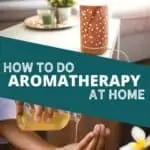Aromatherapy is so much more than you realize
Do you find yourself tossing and turning in your bed without even a sliver of a chance of nodding off? Well, you are not the only one. Stresses of work, tensions at home, and other worries can make it tough for you to relax and enjoy a restful sleep.
But what if we told you a whiff of an aromatic scent could help you relax and support the elusive sleep that you are looking for. Aromatherapy is a holistic therapy that can help you relax and provide many more benefits. With the growing use of alternative and complementary therapies these days, aromatherapy has also gained momentum.
And you are in luck, you don't have to be a professional aromatherapist to enjoy the wide range of positive benefits pure essential oils can bring to life.
In this post, we will cover topics like –
- What is aromatherapy?
- How does aromatherapy work?
- Is aromatherapy safe?
- How to do aromatherapy?
- What are the different types of aromatherapy?
- Aromatherapy products
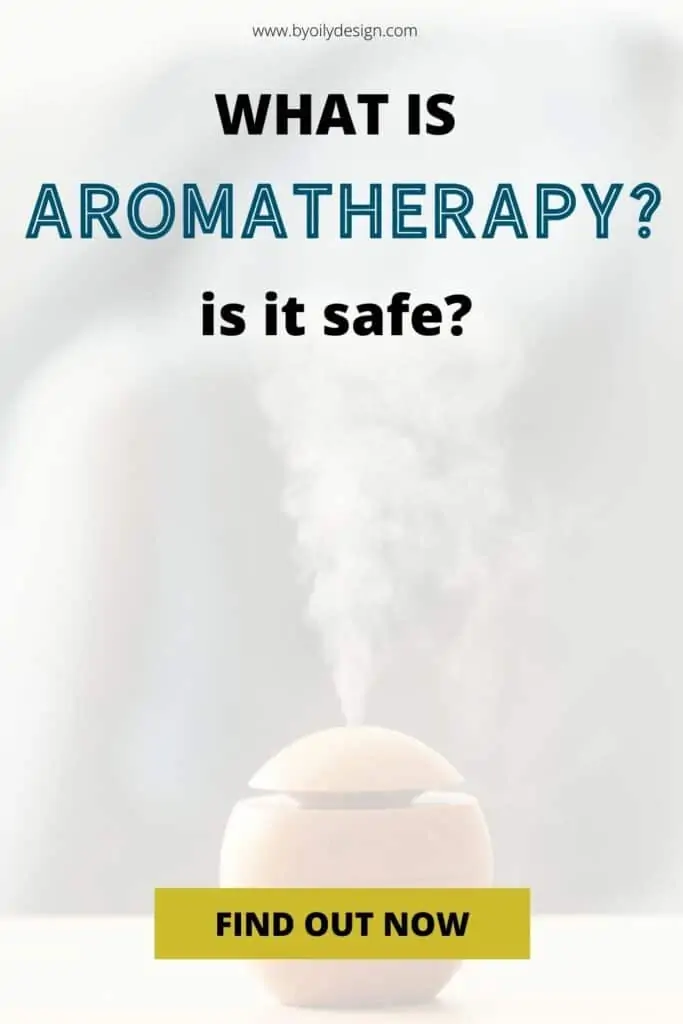
This post contains affiliate links to the essential oils and other products I talk about in the post. Purchasing from the links here on my blog is no extra cost to you. As an Amazon Associate, I earn from qualifying purchases.
What is aromatherapy?
Aromatherapy is a natural therapy that uses essential oil products as the major therapeutic agents to support various health conditions. Essential oils are natural plant extracts derived from the flowers, fruits, leaves, stems, bark, and roots of the plants through different methods. Inhalation, topical application, massage, and baths are the major methods used in aromatherapy to gain the benefits of these oils.
What is the definition of aromatherapy?
The term Aromatherapy, as described by The National Association for Holistic Aromatherapy, is –
The therapeutic application or the medicinal use of aromatic substances (essential oils) for holistic healing.
The Mirriam Webster dictionary defines aromatherapy as –
Inhalation or bodily application (as by massage) of fragrant essential oils (as from flowers and fruits) for therapeutic purposes
It also broadly explains aromatherapy meaning as the use of aroma, sense of smell, to enhance a feeling of well-being.
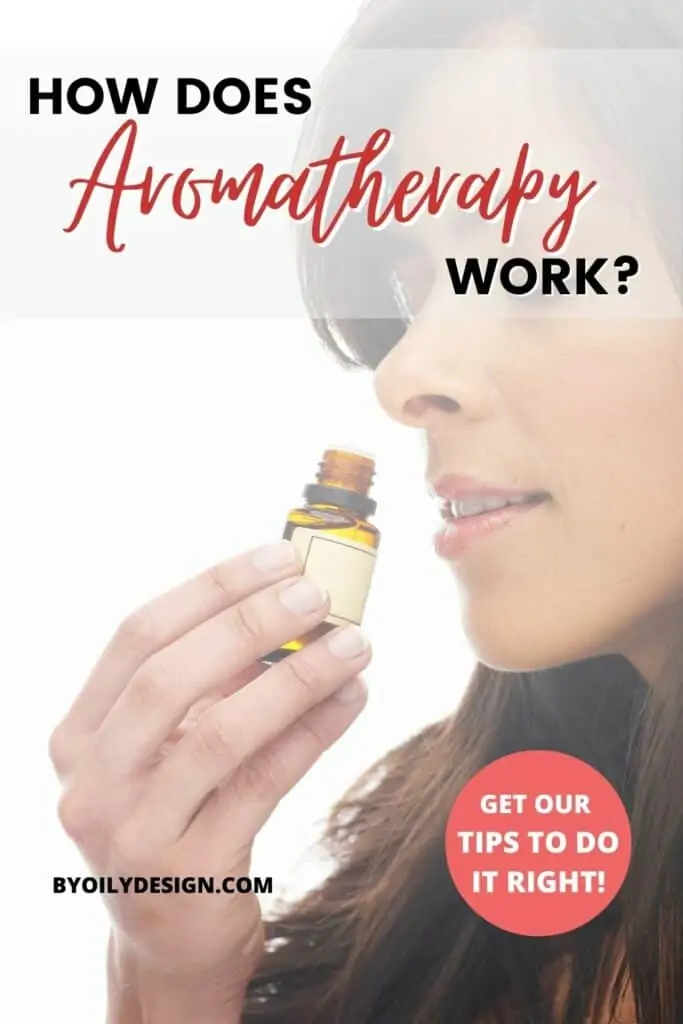
How does aromatherapy work?
Aromatherapy has been around for centuries. When inhaled, the scent molecules travel from the olfactory system to the brain and impact the emotional center part of the brain. Essential oils are absorbed by the skin when used in massage or bathwater.
Once the aromatherapy oil is in the system, they re-modulate themselves and work in a friendly manner in the affected area. This type of therapy can provide a positive effect of support to many of the body systems.
Inhaling the scent of essential oils helps activate the brain’s limbic system, known to control emotions. These oils also contain beneficial properties that stimulate the central nervous system, which monitors internal organs and transmits signals to your muscles and glands. Different essential oils provide different benefits. You must choose the oil depending on the concern you have.
Some oils like lavender oil and bergamot oil can lift your mood and reduce stress; others like peppermint can energize you. Some oils like clary sage and eucalyptus oil support concentration, while others like rosemary and basil relieve tired muscles.
As defined, “aromatherapy” is “the use of essential oils from plants (flowers, herbs, or trees) as a therapy to improve physical, mental, and spiritual well-being.”
What are the different types of aromatherapy?
There are three main types of aromatherapy. These include –
1. Olfactory aromatherapy
Olfactory aromatherapy involves releasing aromatic essential oils around you by diffusion or direct inhalation. Inhaling essential oils result in emotional wellness, calmness, relaxation, or rejuvenation of the human body. The use of essential oil diffusers is a popular way to use this type of aromatherapy. Try our 100 best diffuser recipes to get yourself started.
2. Cosmetic aromatherapy
Cosmetic aromatherapy utilizes specific essential oils for skin, body, face, and hair cosmetic body products. These oils provide cleansing, toning, and moisturizing effects, which help rejuvenate the skin and improve skin issues. Try our most popular Skin Serum it will have your face glowing and more youthful looking
3. Massage aromatherapy
An aromatherapy massage is a combination of the healing touch of massage with the benefits of essential oils like lavender, orange, bergamot, and eucalyptus mixed with a carrier oil such as sweet almond oil or grapeseed oil.
What are the benefits of aromatherapy oils?
Aromatherapy oils, or essential oils, as they are commonly known, offer many health benefits. These include –
1. Easing stress
Aromatherapy is a great tool for stress relief. It can be easily combined with other stress relievers like meditation and massage. Lavender, lemongrass, geranium, jasmine, and chamomile are some of the best oils for stress relief.
2. Boosting energy
Citrus oils contain antioxidants such as limonene, which are proven to have energizing effects. Some of the best oils that provide an energy boost are lemon and peppermint.
3. Supporting focus
Essential oils work wonders when it comes to supporting memory, concentration, and cognitive performance. Rosemary, basil, and sage are some of the essential oils that support focus.
4. Supporting sleep
If you have difficulty falling asleep, essential oils can be an effective relaxation aid. Lavender, chamomile, ylang-ylang, and bergamot essential oils support restful sleep.
5. Supports digestion
Essential oils can help support your digestive health by stimulating digestive enzymes. Ginger, peppermint, fennel, and juniper berry essential oils are the best oils for supporting digestion.
6. Supporting hair health
Essential oils are natural and safer alternatives to promote hair health. You can use them in your hair products to promote healthy hair. Tea tree, rosemary, myrrh, and helichrysum are the best essential oils to support healthy hair.
7. Nourishing skin and supporting healthy skin
Essential oils offer natural support for common skin issues helping skin look more youthful and clear. Lavender, cinnamon, clary sage, bergamot, and tea tree oil are the best oils for skin support.
8. Remedy for tired muscles
Essential oils also provide a natural remedy for overworked muscles. Peppermint oil has a cooling effect on sore muscles. Helichrysum and marjoram oil can also relax overworked muscles.
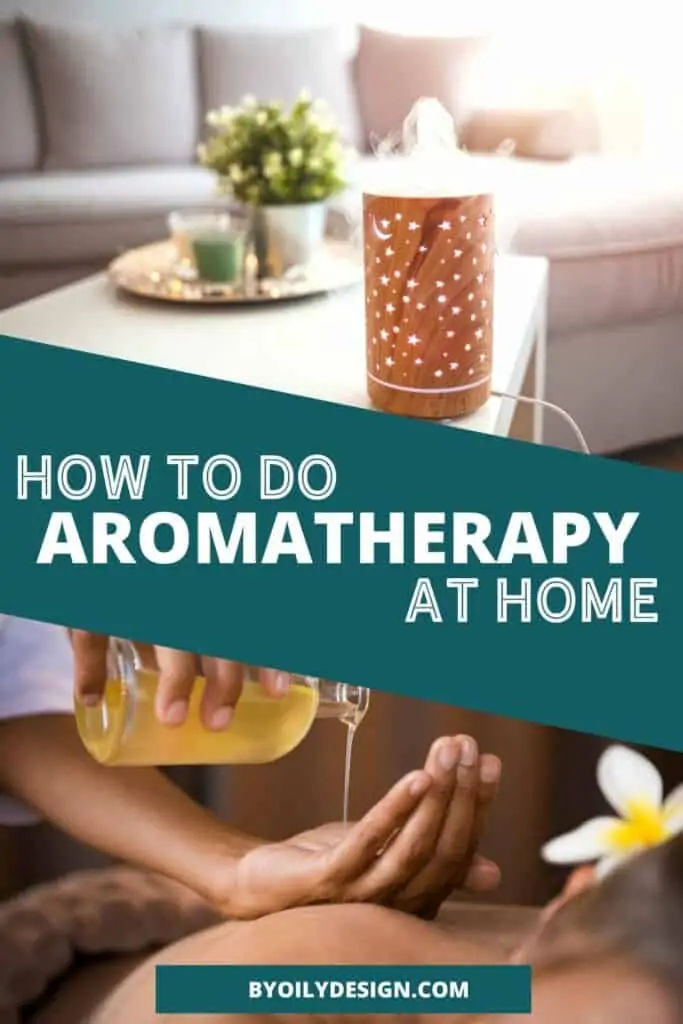
How to do aromatherapy?
There are two ways to use essential oils for aromatherapy –
1. By inhalation
This method helps you smell the essential oil by diffusing drops of essential oil in a diffuser or by steam inhalation or spray. You can use aromatherapy products like diffusers, aromatic spritzers, inhalers, and facial steamers. Check out our guide for the best essential oil diffusers.
2. Through the skin
Essential oils can be absorbed through your skin when applied topically. You should always dilute essential oils with a carrier oil like apricot kernel oil before using them on your skin. Using an essential oil roller that is pre-diluted with essential oil and carrier oils makes using essential oils topically easy.
3. Orally
Some essential oils can be taken internally. However, you must make sure that the oil is safe for ingestion before you take it internally. Look at the label on the bottle of oils to see that it is labeled for internal use. It is advised to only use oil orally under the instruction of a certified aromatherapist. Always let your medical doctors know if you are ingesting oils as oils can have an effect on the medication you have prescribed and current medical conditions.
Is aromatherapy safe?
Essential oils, when used properly in aromatherapy, are generally safe. However, some people can suffer an allergic reaction, skin irritation, and sun sensitivity when using essential oils for aromatherapy. If you are considering aromatherapy, consult a doctor or a trained aromatherapist for medical advice to know the right way.
Here are some helpful tips on the right way to use essential oils for aromatherapy –
- Never use essential oils in their undiluted form. Always dilute these oils in a carrier oil before use.
- Using more will not give you more benefits. Always use essential oils in the recommended amount. These are highly concentrated compounds, and you should avoid using too much.
- Always read the label of the product you are buying to ensure that you buy quality products. Some essential oil may be diluted with synthetic ingredients so purchasing pure essential oils is key.
- Don’t use essential oils for everything.
- Always use essential oils after consulting a trained aromatherapist. An aromatherapist is defined as a person who is qualified to practice aromatherapy. They will review your medical history to see if you are a fit for this alternative medicine therapy.
for more information on essential oil safety check out our post on the Dangers of diffusing essential oils and Essential oil safety.
Who uses aromatherapy?
Human beings have used aromatherapy for thousands of years. Essential oils were used in the ancient cultures of Indian and China. Ancient Egyptians prized essential oils for their physical benefits and fragrance. They were used for religious and medical purposes. Even today, people use aromatherapy to support general health, for creating perfume oils, and massage oils.
Who should not use aromatherapy?
Children younger than five years should not use aromatherapy as they can be sensitive to the oils. People with certain chronic conditions should also not use aromatherapy without consulting with their doctor. These conditions include asthma, respiratory allergies, and chronic lung disease. People with skin allergies should also avoid aromatherapy. Pregnant women should also avoid aromatherapy as some oils can cause uterine contractions.
Check out our list of essential oils you should avoid if you are pregnant or have small children in this post- Are you using essential oils safely with your family?
Which essential oils smell good together?
A room that smells good can not only improve your mood; it can provide many health benefits as well. Here are a few aromatic oils and essential oil blends that provide your room a scent that you will fall in love with.
Energising blend
- Lavender – 3 drops
- Ylang-ylang – 2 drops
- Wild orange – 4 drops
Autumn air blend
- Sweet orange- 4 drops
- Lemon – 3 drops
- Fir – 3 drops
Fresh and clean blend
- Lavender – 3 drops
- Tangerine – 3 drops
- Eucalyptus – 2 drops
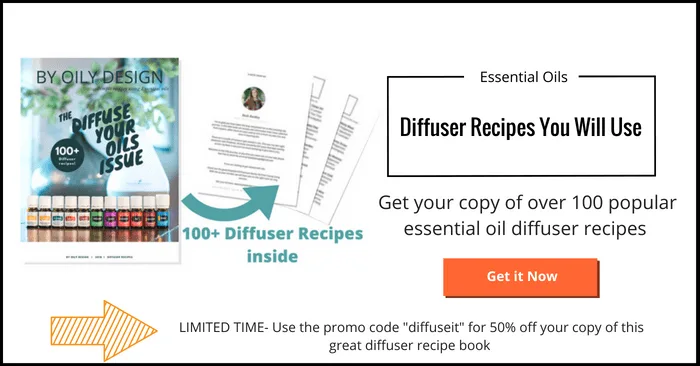
How many times a day can you diffuse essential oils?
You can diffuse essential oils one to three times a day for up to 30 minutes at a stretch. You should never use your diffuser for hours at a stretch.
Are essential oils bad for your lungs?
There isn't enough evidence to prove that essential oils are beneficial for lung health. However, if you have health problems like asthma or chronic obstructive pulmonary disease, you should be cautious about using essential oils. Inhaling the particles released by the different oils can trigger airway inflammation and asthma symptoms.
What are the side effects of essential oils?
Just because essential oils are natural products does not mean they do not have any side effects. Some of the side effects of essential oils include –
- Skin irritation – You must always do a patch test before you use essential oils.
- Asthma symptoms – Breathing in essential oils can lead to an asthma attack in some people.
- Headaches – Inhaling essential oils for a long time can trigger headaches in some people.
Final thoughts – does aromatherapy work?
Aromatherapy is defined as the practice of using natural essential oils for therapeutic benefit. While aromatherapy has been practiced in many cultures for thousands of years, its growing popularity and easy availability of essential oils have made it mainstream now.
Many people wonder –is aromatherapy real? The numerous benefits of therapeutic aromatherapy prove that not only is it real and but also very useful for various conditions. Essential oils offer various benefits like improving mood, reducing stress, supporting digestion, and supporting clear skin.
Written by Manveen Grewal , Edited by Ruth Rackley
Definition of aromatherapy


